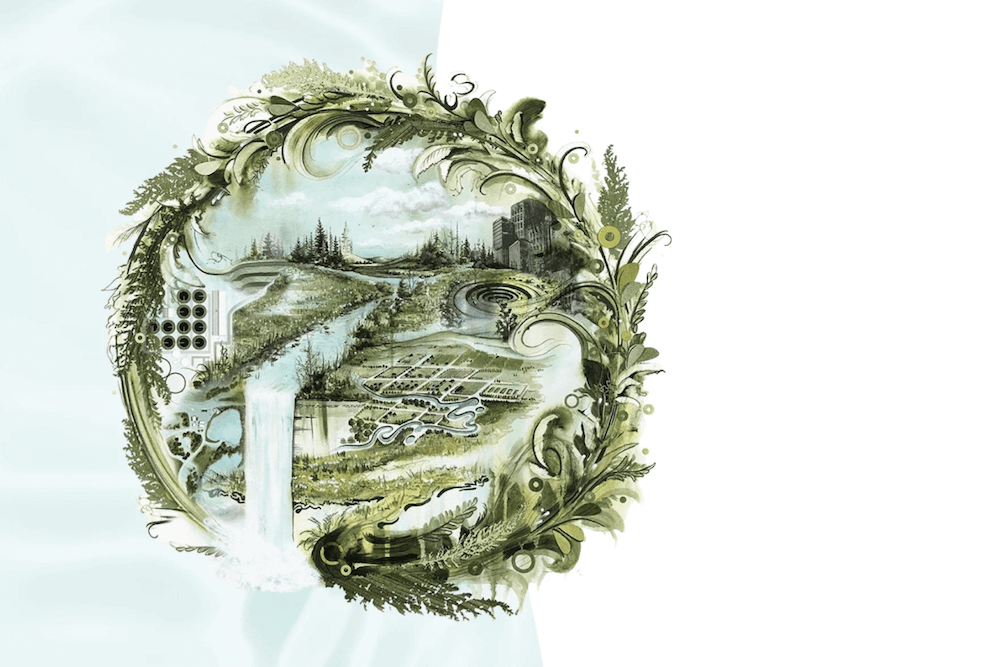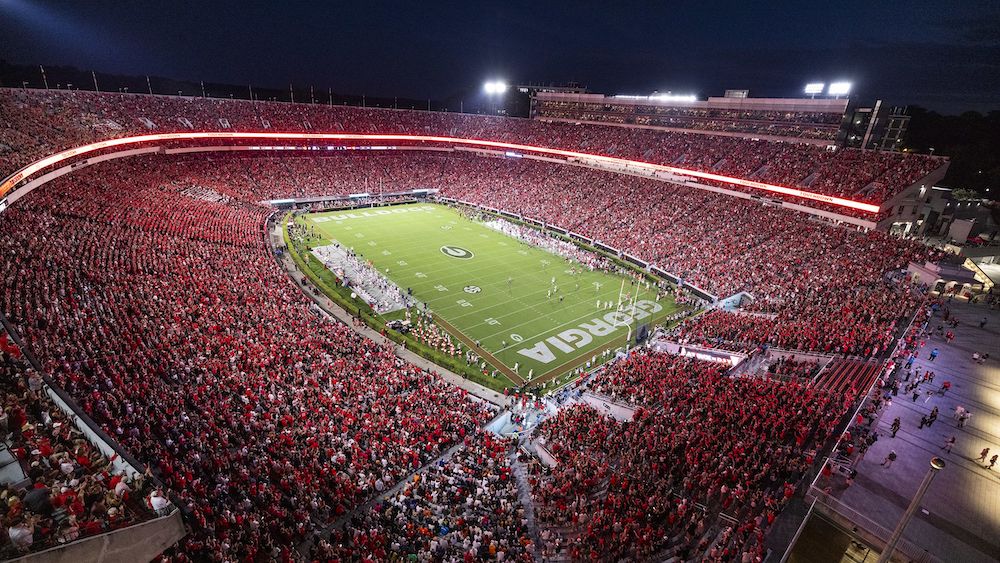By Morgan Roan
University of Georgia
A woman planning to have a baby should eat a healthy diet
before she gets pregnant, said Connie Crawley, an Extension
Service nutrition and health specialist with the University of
Georgia College of Family and Consumer Sciences.
After the first three months, the woman needs to consume about
300 calories more each day than usual. “An increase in healthy
foods is best,” she said. “You don’t have to eat a lot of extra
food to raise your caloric intake. One sandwich or three cups
of skim milk will satisfy the extra 300 calories.”
Pregnant women should follow the guidelines suggested by the
U.S. Department of Agriculture Food Guide Pyramid. Eat at least
three meals with one or two snacks each day. “Small, frequent
meals are best,” she said.
“The average woman gains half a pound to 1 pound each week
after the first trimester,” Crawley said. “Most women only gain
1 to 4 pounds during the first trimester. An average-size woman
will gain 25 to 30 pounds while pregnant.”
Folate
It’s important for women of child-bearing age to take folate
before they get pregnant, Crawley said. This will prevent
neural-tube defects like spina bifida, a problem of spine
development, and anencephaly, a poorly formed brain and
skull.
“The major organs of the baby are formed within eight weeks of
pregnancy,” she said. “This is why it’s important for the woman
to take 400 micrograms of folate in a supplement before and
after conception.”
Many multivitamins or prenatal vitamins contain the right
amount of folate. Always check the label to be sure.
Calcium
Calcium helps the baby’s bones grow properly and protects the
mother’s bones. Pregnant women should take about 1,500
milligrams each day. Calcium is found in milk, other dairy
products,
calcium-fortified juices, leafy green vegetables,
fortified soy milk and calcium supplements.
Fiber
To help prevent constipation, a common problem during
pregnancy, pregnant women should eat more fiber. “Whole grains
are a better source of fiber than refined grains,” she said.
Five to seven fruits and vegetables a day are good, too.
Iron
Meats, dried beans and peas and dark leafy green vegetables are
good sources of iron. Eating enough of these foods will prevent
iron deficiency. Doctors will tell most pregnant women to take
an iron supplement, too.
Foods to avoid
Some foods, such as swordfish, shark, tuna steaks and other
large fish, contain high levels of mercury. Don’t eat these in
large amounts. They may cause neurologic damage to the baby.
Cook meats well to kill the bacteria that could cause serious
complications for the unborn child. “Even precooked meats such
as lunch meat and hotdogs should be heated,” Crawley said, “to
kill any bacteria.”
A harmful bacterium called Listeria monocytogenes can be found
in soft cheeses (like feta, Brie, Camembert, blue-veined
cheeses and Mexican-style cheeses like “queso blanco fresco”)
that may be made with inadequately pasteurized milk. This
bacterium can cause miscarriage, premature birth, blood
poisoning or other life-threatening complications.
“Cream cheese and aged cheeses are safe to eat,” Crawley
said. “Another safety suggestion is to rinse vegetables and
fruits with water and wipe them off well before eating.”
Exercise
It’s safe to exercise during pregnancy. Running and other
strenuous lower-body exercises, though, aren’t good. They
may put a lot of stress on the baby.
“Walking or swimming is better because it promotes more
rhythmic motion than bouncing,” Crawley said.
During pregnancy, perform exercises that won’t throw your
balance off. “Water exercises are best,” she said. “They’re
supportive and relaxing.”



